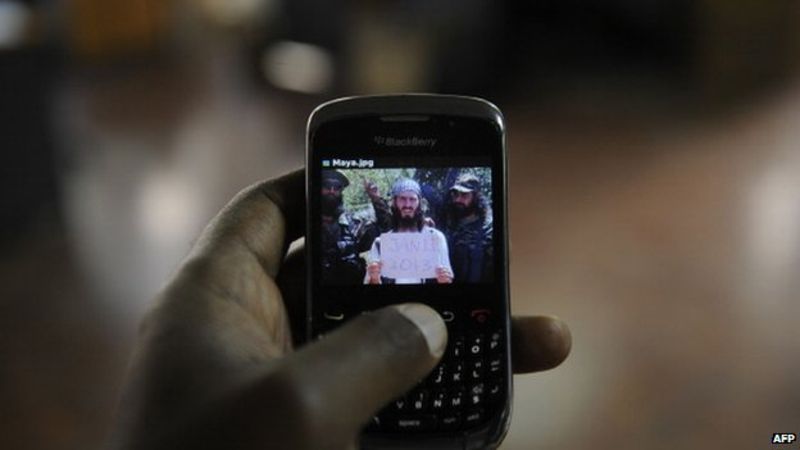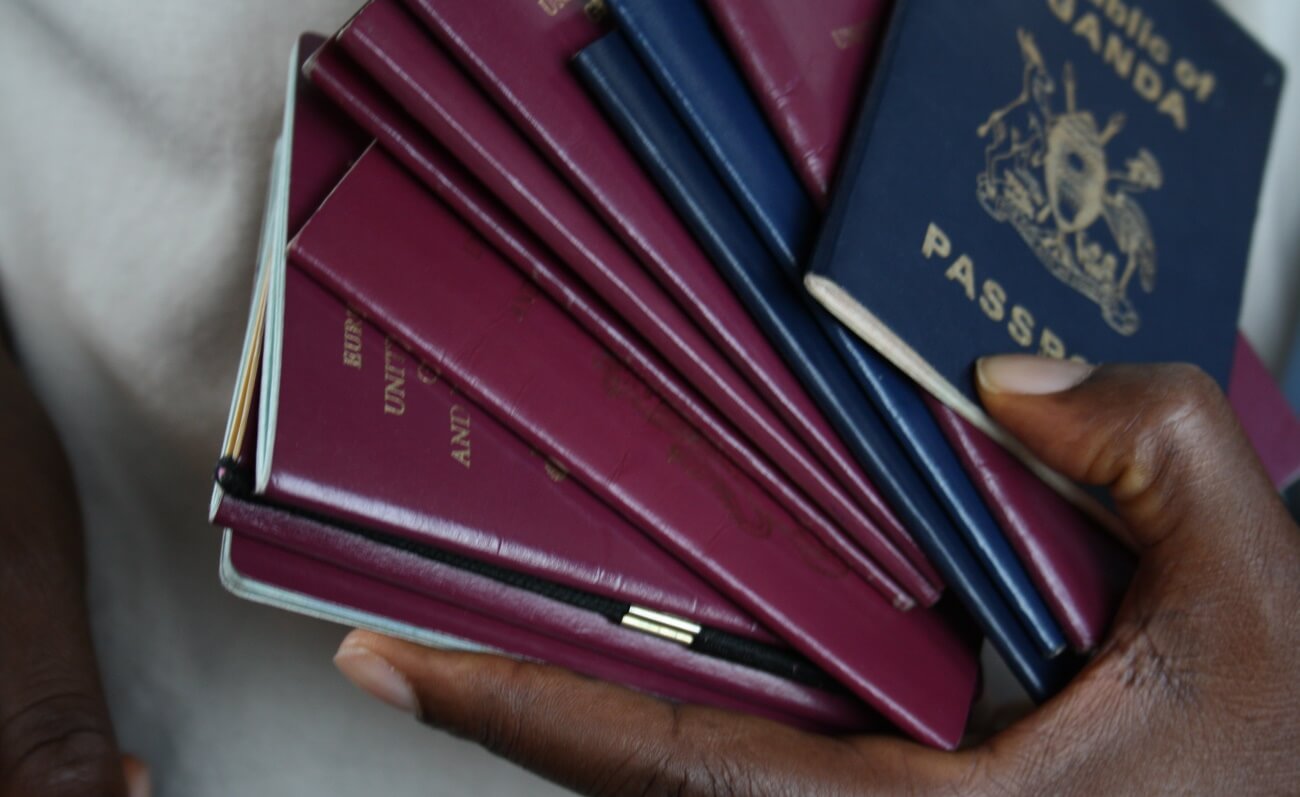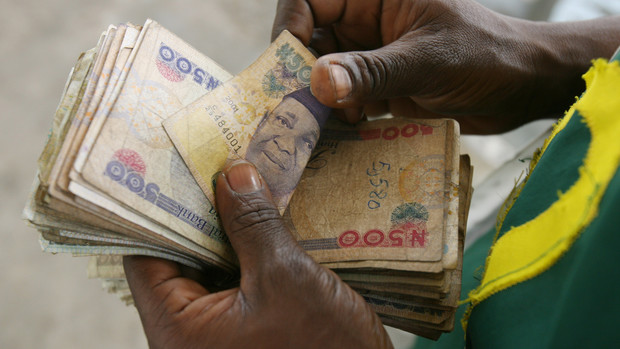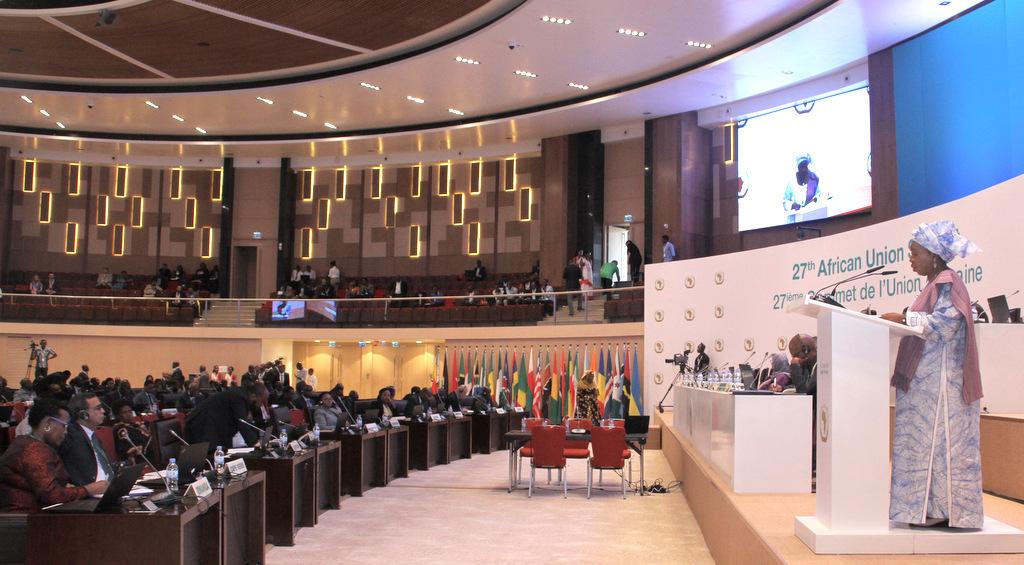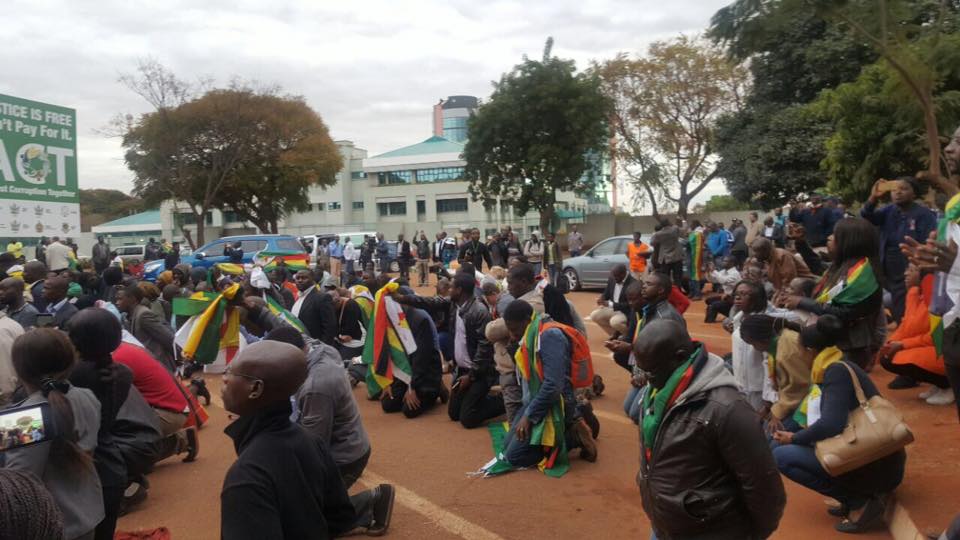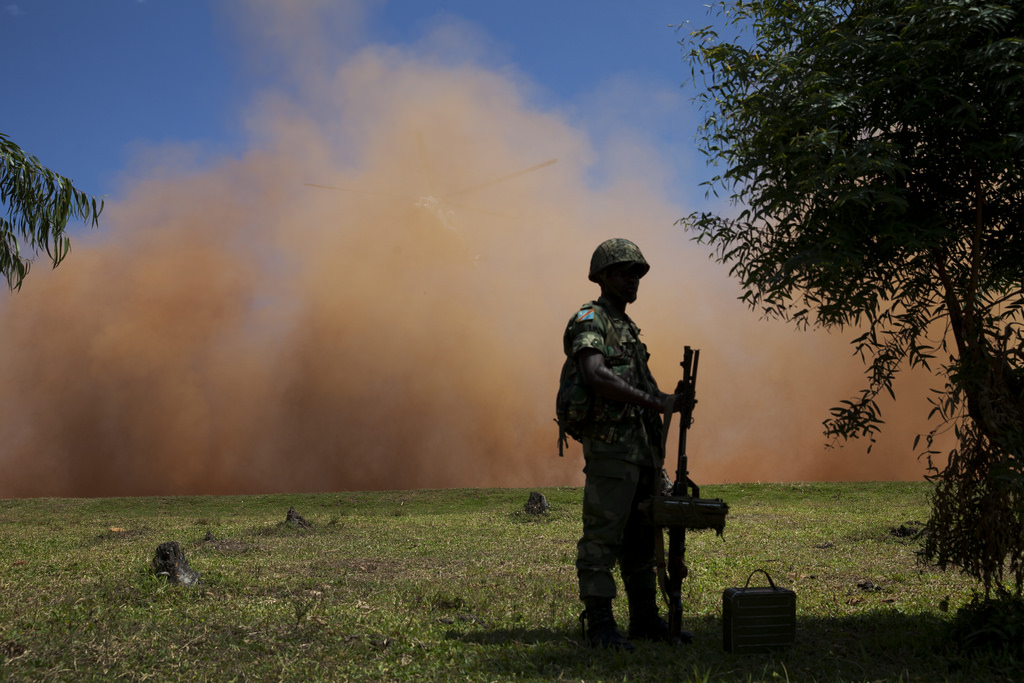Although not entirely unexpected, South Africa’s announcement that it had taken steps to withdraw from the Rome Statute, the founding treaty of the International Criminal Court (ICC), has baffled many observers. South Africa is generally seen as a champion of human rights, given its liberal constitution, the existence of a strong civil society advocacy for […]
Essays
Essays present critical analysis and debate on a pressing issue in African peacebuilding.
“Africanizing” Media Coverage of Threats to Peace and Security on the Continent
by Fredrick OgengaA recent surge of terrorism has compounded preexisting threats to Africa’s peace and security, manifesting in complex forms of conflicts that are undermining the continent’s developmental ambitions. Creative solutions are needed to mitigate conflict and address the new threats, which include religious fundamentalism and extreme forms of violence. Of particular note is terrorism, now mutated […]
Africa’s Development: The Paradox of Continental Integration and Closed Borders
by Obijiofor AginamBy: Obijiofor Aginam[1] The Crux of the Argument The decolonization of most of Africa which largely occurred in the decade of the 1960s – heralded by the independence of Ghana in 1957 – led to the formation of the Organization of African Unity (OAU) on 25 May, 1963. One of the primary aims of OAU […]
Do Religious Communities Hold the Key to Counter-Radicalization in Kenya?
by John Mwangi GithigaroIn the post-9/11 environment, religious communities have been considered vital partners in efforts to counter radicalization widely believed to be a factor that drives acts of violent extremism. Violent extremism is considered a transition phase in the radicalization process and is marked by the mobilization of violence. One notion of community defines it as individuals […]
Coping with Uncertainties: The Predicament of Nomadic Pastoralists in Southern White Nile State, Sudan
by Musa Adam Abdul-JalilUncertainty is a permanent and constant risk for pastoralists, both in terms of the physical environment and the socioeconomic and political conditions surrounding them. The Southern White Nile State in Sudan is home to many such groups that have faced uncertainty for a long time as they have practiced the tradition of moving between north […]
Boko Haram: Cash Cow of the Sahel or Part of a Grand Strategy?
by Jude Cocodia[Photo: A petrol station attendant counts Nigerian’s currency, the naira, in Abuja, Nigeria. Photographer: Suzanne Plunkett/Bloomberg] Between 2002 and 2011, the BBC and the British newspaper, The Guardian, consistently rated Nigerians as the world’s happiest people.[1] In sharp contrast, by 2013 a Forbes Magazine survey ranked Nigeria as the twentieth saddest place to live on […]
Why is the 18th July AU decision to adopt a new funding model so important?
by Linnéa GelotIn an effort towards reducing the African Union’s (AU) financial dependency on external donors, the organization adopted a new funding mechanism at the recently concluded 27th AU Summit held in Kigali, Rwanda. The adopted approach, a tax levy of 0.2 percent on ‘eligible’ imports of all of its member states, had been recommended by a […]
“To Remain Silent Is a Position”: A Look into the #ThisFlag citizen’s movement in Zimbabwe
by Ruth MurambadoroFrom its inception in mid-April 2016, the #ThisFlag citizens’ movement has been challenging the government of Zimbabwe through social media, making demands related to the dire socioeconomic situation facing the people. Hardships confront the majority of the country’s citizens, especially the economically active among the population who cannot afford to provide the basic necessities for […]
“If I Die, Let Me Be the Last”: Reflecting on Dr. Lukwiya and Uganda’s Efforts Against Ebola
by Pamela Khanakwa"Promoting public awareness about the disease and developing mechanisms of social support to victims and affected communities is extremely critical because the outbreaks of virus diseases such as Ebola are social issues inasmuch they are medical issues, and go beyond biomedical concerns alone. None of these tactics, however, are possible without good governance and effective leadership, which we as Africans must advocate for and hold our leaders accountable."
Congolese Soldiers as Victims: Military Prosecution and Punishment
by Godfrey Maringira"Some soldiers are victimized by the very military they serve through court martial proceedings that often delay prosecution and then serve up an unfair and tedious process. What is needed at the policy level is independent civilian jurisdiction to prosecute soldiers who commit offenses."



